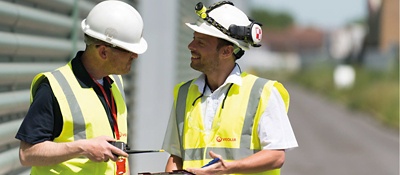你的财务转型计划运行at the same time as a broader, IT-led initiative to move Veolia to the cloud. Can you tell us about that and how you went about the procurement process?
Our programme ran in parallel to a global project, “Move to the Cloud,” which, as the name suggests, was about moving the infrastructure behind our existing tools to the cloud. Led by our IT team, it was a major change that also ensures that all new tools must be SaaS, regardless of the business function. This led us to Workday, as we looked to rationalise the number of ERP systems we had within the group—to give you some idea, we had more than 50!
When you start to tender for a project like this, I think it’s very easy to get caught up with the usual suspects and the older brands in the game. But, what we saw from Workday was extremely convincing, and we liked the clean and modern user interface, how easy it was to use and, perhaps most importantly, how it combines transactional and other data together tobuild dashboardsthat managers, accountants, and other staff can use to make fast decisions.
As I speak to you, we are not yet live on Workday. We are in the project phase in three of our business units, with a go-live scheduled for January 2021. We are looking forward to the first set of feedback from our users as the project moves into the live phase.
How has the COVID-19 pandemic impacted your business, and how have you adapted to remote, digital working?
We continued to operate in all regions during the pandemic, with a slight drop in activity between mid-March and mid-May, but we are now operating at a normal level. The “Move to the Cloud” project really showed its value here as the organisation adapted very well to remote working. Because we had already moved to the cloud, and equipped our employees with Google Chromebooks, staff were able to access all applications regardless of their location. This was particularly important for operational staff, especially the finance team.
It's worth saying that during the pandemic we were in the process of implementing Workday Financial Management in the UK and France. We were able to continue these deployments without interruption. Those projects remain on schedule, which is pretty amazing under the circumstances.
There’s a lot of talk about what the “new normal” will look like. How do you see your organisation changing in the near future, and what role will digital play in building that future?
Interestingly, and I don’t think we are the only company to think like this, but the crisis has actually accelerated our digital transformation. It has also helped us convince some of those people who were resistant to change. They understand just how important this now is to the organisation.
In the context of the crisis we have just experienced: Digital is absolutely key. A good example of this is in our Chinese operations, where we moved from a 100% manual workflow to a completely digital planning, budgeting, and forecasting process. We can’t predict the future, but we now have the tools to help us plan for change and uncertainty—that’s a pretty powerful thing.
Any tips or advice for other organisations embarking on a similar journey?
Moving away from traditional ERP systems is a blessing, but that change requires a change in mindset and culture, too. Businesses should make sure their pre-deployment planning is very rigorous, and that they get crystal clear on what they want to achieve. Understanding their processes, how they want to structure their management model, and how they communicate with the business are all very important things to consider.






